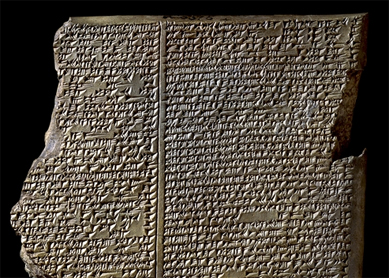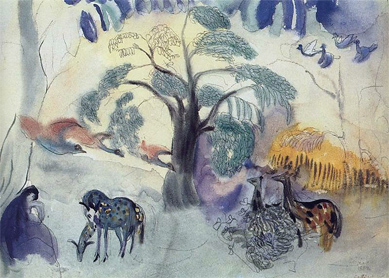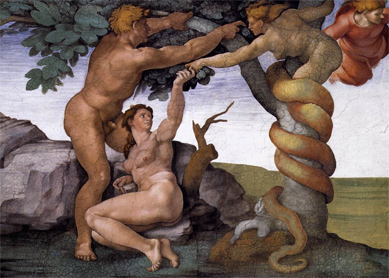The Epic of Gilgamesh, a literary product of Mesopotamia, contains many of the same themes and motifs as the Hebrew Bible. Of these, the best-known is probably the Epic’s flood story, which reads a lot like the biblical tale of Noah’s ark (
The Gilgamesh Epic was familiar in the biblical world: copies have been found at Megiddo, Emar, Northern Anatolia, and Nineveh. It shares many motifs and ideas (such as the Flood) with other ancient Near Eastern texts. Because of this, it is difficult to state with any certainty that the Epic directly influenced the stories of the Bible. For example, it was widely believed that dreams could be divinely inspired, cryptic forecasts of the future. So when Joseph dreamed of sheaves of corn and bowing stars (
In the Epic, the gods create Enkidu, who runs wild with the animals in the open country, as a companion for Gilgamesh. There are particularly interesting similarities between the Garden of Eden story in Genesis and the story of Enkidu’s movement from nature to culture and civilization. In both stories, a woman is responsible for the transition of a man who had once eaten and drunk with the animals to a state of estrangement from nature. Once Enkidu is rejected by the animal world, the woman Shamhat gives him clothing and teaches him to drink beer and eat bread—all technological developments that separate humans from animals.
In Genesis, once Adam has eaten the fruit of the tree of knowledge, he covers his nudity and is sentenced to a life of cultivating food by harsh labor. This is the cost of divine knowledge. In Gilgamesh, when Enkidu becomes estranged from the animals, Shamhat tells him that he has become “like a god.” Later, on his deathbed, Enkidu laments his removal from a state of nature, only to be reminded by the god Shamash that while civilized life is more fraught with difficulty and the knowledge of one’s own mortality, it is a worthwhile price for cultural knowledge and awareness.
The closest parallel between a biblical text and the Epic of Gilgamesh is seen in the wording of several passages in Ecclesiastes, where a strong argument can be made for direct copying. The author of Ecclesiastes frequently laments the futility of “chasing after the wind” (for example,
This advice sums up the message of both the Epic of Gilgamesh and Ecclesiastes, two texts that wrestle with the search for meaning in the face of human mortality.





